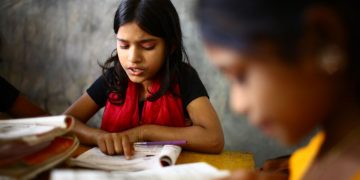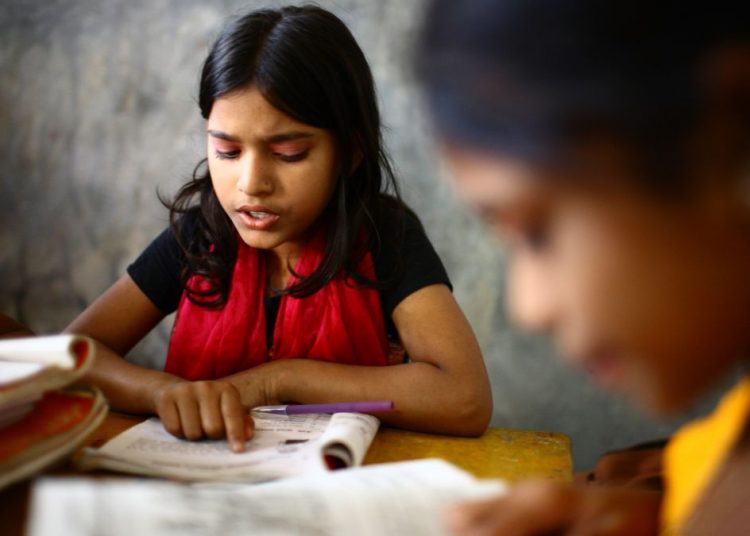Last updated on February 10th, 2021 at 11:55 am
Imran is a 14-year-old boy living in Pabna, Bangladesh. He spends his days indoors in a factory, struggling with fabrics and sewing machines. He’s a daily wage earner. But until March, before CoVID-19 came to his country, Imran was a student. Then, due to pandemic, his school closed and he transferred to “remote learning.” But as his family is very poor and they can’t afford a PC, a tablet, a smartphone, or even a television, so Imran was forced to give up studying and gave himself up to the hard work of an exhausting job.
Increasingly poorer families
Imran’s is a fictional story, but representative of a reality. The problem of the increase in child labour in Bangladesh due to “remote learning” has been addressed by the portal UcaNews. One of these teenagers who dropped out of school says: “I saw my father’s suffering in managing the family. Yet he sent us to school despite the difficulties. I wanted to work and help him, but he did not agree. Only after the school closed did he allow me to work.” The virus has dealt another blow to Bangladesh’s precarious economic situation, so much so that many households, already miserable, have seen putting even young children to work as a sad but necessary resource.
Data
Thousands of poor Bangladesi children are being forced to give up their studies because of the pandemic. According to the report Interim Education Watch 2020-21 by the NGO Campaign for Popular Education (CAMPE), 69% of hundreds of students surveyed did not participate in remote learning classes and 57.9% said they were unable to attend due to lack of electronic devices. Mostafizur Rahaman, one of the authors of the study, told the Daily Star, “Distance learning programs, in general, remain ineffective. Students said they don’t have TVs, laptops, computers and smartphones.” And about 25% of teachers fear a further surge in school dropouts.
Pressure on the government
The report also notes that 75% of students would like to return to school as soon as possible, while 80% of education NGO officials are lobbying the government to ensure that children’s right to learn is guaranteed. Bangladesh authorities closed all schools of all grades on March 17. In recent months, the closures have been extended from time to time: the latest decision, which dates back to last week, decreed the closure until 14 February. CAMPE NGO director Rasheda K. Chowdhury told UcaNews, “It is evident how students are being harmed, so teachers and parents want to see schools and universities reopen soon. The government must take a quick decision, otherwise students will continue to be harmed.” The idea of the authorities is to reopen gradually, between the second half of February and the first half of March.
It’s worse in rural areas
But a year without school represents a social and educational disaster. Ranjan Purification, headmaster of a Catholic school, St. Mary’s Junior School, in Bandarban district, believes that the situation in rural areas is even worse than the report portrays. Teachers at her school have gone to great lengths to engage students after the closures, even making house-calls, but Purification fears 10-15% of pupils may drop out. “If the data is true,” commented Jyoti F. Gomes, secretary of the Bangladesh Catholic Education Board Trust, “I think it is better to open all educational institutions as soon as possible.” ASAP—before the “new normal” does irreparable damage.




















Discussion about this post